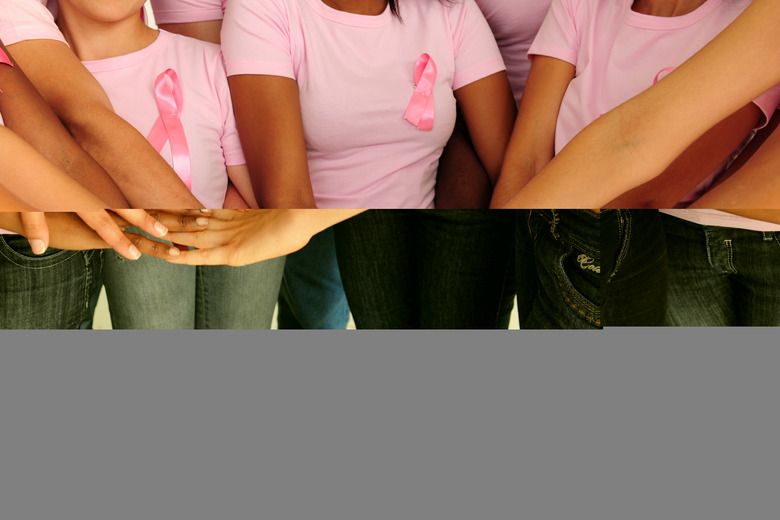6 Foods Every Breast Cancer Patient Should Eat (And 6 They Shouldn't)
A breast cancer diagnosis is a jarring reality that often influences women to closely monitor their health and diet. Many women endure the trauma each year, with over 200,000 new cases reported annually in the United States alone. Research attempting to find a cure for the disease is ongoing; while some major breakthroughs have been made, a cure has yet to be discovered.
October is Breast Cancer Awareness Month. The quest for a cure for breast cancer could always use your help — if there was ever a time when opportunities to donate were available, it's during this time of year. You can participate in a local walk, purchase products from brands that have "gone pink" for October, or donate directly to one of many foundations dedicated to the cause.
For breast cancer patients, health no longer seems simple. Many patients are driven to reevaluate their dietary choices without much clear direction. To get a better idea of what breast cancer patients should consider adding and eliminating from their diet, we conducted some research and consulted the Johns Hopkins Medical Center's resources page. From their recommendations, among other research-backed evidence, we devised this list of foods every breast cancer patient should (and shouldn't) eat.
Fish
It's wise for breast cancer patients to limit red meat and other fatty protein sources — but protein is still important. That's where fish, a flavorful and nutritious source of lean protein, comes in handy. Luckily, there are enough healthy seafood recipes out there to get your recommended three servings per week without sacrificing variety.
Fruits and Vegetables
Of course. Fruits and vegetables have important nutrients and cancer-fighting antioxidants. Some of the best for breast cancer patients include cruciferous vegetables, carotenoids like sweet potatoes and carrots, and melons or berries.
Garlic and Onions
Vegetables in the allium family, such as garlic, onions, shallots, and chives, do more for your meals than just add flavor. According to the National Cancer Institute, they contain flavonoids and other health-boosting compounds that are beneficial to cancer patients.
Leafy Greens
While dark leafy greens like Swiss chard and spinach are better for you overall, really any leafy green will work. These vegetables should be consumed in larger portions than others — try sneaking them into foods you wouldn't normally in order to boost your greens consumption without having to eat salad all day.
Legumes
According to the Johns Hopkins Medical Center, "High fiber intake may have a positive benefit by altering hormonal actions of breast cancer and other hormonal-dependent cancers." Legumes such as beans, lentils, and peas have a ton of fiber and other nutrients such as protein and various minerals.
Whole Grains
In addition to legumes, whole grains are a nutritious source of fiber. Johns Hopkins specifically recommends an increase in whole grains consumption during cancer treatment. Some whole grains you might want to incorporate are quinoa, whole wheat bread, and brown rice.
Avoid: Alcohol
In moderation, alcohol could be a part of any person's healthy diet. However, once you overdo it, the results can be caustic. While the exact results of consumption on breast cancer remain unclear, medical professionals advise women with breast cancer to abstain from drinking more than one drink per day.
Avoid: Beef
Frequent red meat intake has been linked to lower survival rates from breast cancer, among other types. Beef becomes even worse for you when it's overly processed, making foods like hot dogs a nightmare for your body to deal with.
Avoid: Cheese
Cheese is high in saturated fat — which makes it delicious, but probably not a good food to be eating often if you're being treated for breast cancer. While unsaturated fats have shown more positive outcomes for cancer patients, saturated fats such as those in dairy have not.
Avoid: Fried Foods
French fries, onion rings, and other fried delights are easy on the taste buds but rough on the stomach. The likelihood that these foods contain trans fats is very real, as is the set-up for indigestion. Take the stress off your body by keeping the fried food to a minimum.
Avoid: Processed Snack Foods
These packaged foods often contain trans fatty acids, which have been linked to cancer, heart disease, and other health complications. It's recommended that you limit these foods — not only to prevent the spread of cancer but also for your general health and well-being.
Avoid: Refined Sugar
One study showed that mice that ate more sugar showed a greater prevalence of tumors and increased tumor growth when compared to mice that refrained. An excess of refined sugars can also cause spikes and dips in blood sugar and metabolic abnormalities — so it's in your best interest to be mindful of them. There are sweet treats out there that don't add tons of refined sugars to your diet. Here are some sugar-free cookie recipes that still taste just as sweet.












